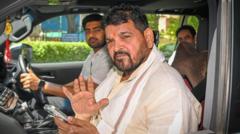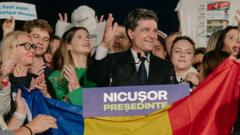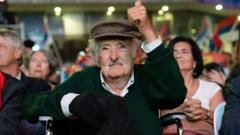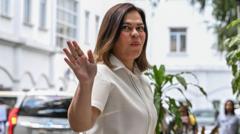Venezuela's government has proclaimed an overwhelming electoral win in recent regional and parliamentary elections, which were boycotted by most opposition groups citing concerns over fairness. The electoral council, dominated by pro-government figures, announced that President Nicolás Maduro's party, the United Socialist Party of Venezuela (PSUV), swept 23 out of 24 gubernatorial posts and secured over 82% of votes for the National Assembly. However, key opposition leaders, including María Corina Machado, criticized the legitimacy of the election, claiming that less than 15% of voters participated and denouncing it as a "farce." Independent sources reported very low turnout, contrasting the electoral council's claim of 42.6%.
Venezuela's Ruling Party Declares Electoral Triumph Amid Opposition Boycott
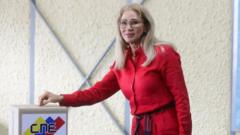
Venezuela's Ruling Party Declares Electoral Triumph Amid Opposition Boycott
In a controversial election marred by opposition boycotts and claims of fraud, Venezuela's ruling party lays claim to a significant victory.
Maduro's administration faces backlash as independent journalists captured near-empty polling stations and dissatisfaction within the ranks of opposition figures, including those who chose to run against Machado's call for a boycott. Amidst political repression and the arrest of over 70 opposition members before the elections, Maduro's party reclaimed many governorships, but opposition members managed to secure some seats in the National Assembly. These developments come at a time of heightened tensions surrounding a territorial dispute with neighboring Guyana over the Essequibo region, further complicating Venezuela's political landscape.
In a highly polarizing atmosphere, Maduro's win claimed by his supporters as a triumph for peace and stability raises questions about the future dynamics of Venezuela's political spectrum, particularly with the ongoing suppression of dissent and international scrutiny over the legitimacy of the electoral process.
In a highly polarizing atmosphere, Maduro's win claimed by his supporters as a triumph for peace and stability raises questions about the future dynamics of Venezuela's political spectrum, particularly with the ongoing suppression of dissent and international scrutiny over the legitimacy of the electoral process.


